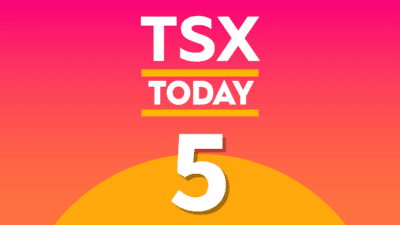Back in July I’d discussed why Ontario adopting private cannabis retail had the potential to be great news for investors. Top producers and industry experts had been pushing for a system that was at least partially private from the moment legalization was announced.
At first it appeared as if Ontario was ready to hand over the reins to the Liquor Control Board of Ontario (LCBO), but an election win by Doug Ford and the Progressive Conservatives changed that course.
Ford’s party announced that it would pursue private cannabis retail in late July. In August the government began to release more information that gave consumers and investors a clearer picture.
It also revealed that over-the-counter retail would not be available to consumers until April 2019, as the province was still hashing out the regulatory framework.
We now sit exactly two weeks away from the October 17 legalization date. On September 27 the proposed regulations were submitted to lawmakers. How should consumers and investors feel about this model? Today I want to go over some of the details and assign a grade for what could be the new system for Ontario consumers by the spring of next year.
A populist proposal?
The ruling PCs introduced legislation in which licensed producers will be able to open only one retail location. “We want to open up the market place,” said Finance Minister Vic Fedeli. Some political analysts have said that the move is an attempt to give a populist flavour to the regulatory framework. This means that the top producers will be blocked from establishing a dominant foothold in cannabis retail, at least early on.
Canopy Growth (TSX:WEED)(NYSE:CGC) CEO Bruce Linton said that the rules would open things up for independent retailers and allow the strongest brands to win out. “There’s going to be a whole bunch more locations to sell product,” he said. “Whether or not they’re ours, branded with us, partnered with us or trained by us.”
Aurora Cannabis (TSX:ACB) will be subject to these same limitations, but does boast a 25% interest in a retailer it recently acquired. Alcanna (TSX:CLIQ), an Edmonton-based alcoholic beverage and cannabis retailer, began to make inquiries to build its Ontario footprint after the PCs announced the private system. The company will open 37 stores in Alberta, the maximum allowed for a single province by a retailer in the first year of legalization.
Alcanna CEO James Burns said that he does not expect Aurora’s interest in Alcanna to impact its ability to build a retail network in Ontario. Aurora and Alcanna entered into an exclusive license agreement back in August. At the time, the agreement stipulated that stores would operate under the Aurora name; it’s currently unclear whether it will be able to carry out this branding in Ontario without breaching the new rules.
A “B” grade
The decision to limit producers to one store was a surprising one, but it should not prove too worrisome for investors betting on the top names as the rollout nears. As Canopy Growth CEO Bruce Linton outlined, the strongest producers will still be able to establish a firm presence at independent retailers.
The plan gets a grade of B due to the inclusion of an opt-out clause for municipalities that will expire on January 22. The potential lack of access for consumers was a concern ahead of the liberal government plan.
It would be unfortunate for certain prospective business owners to be frozen out of the market or for consumers to be forced to travel long distances to acquire a soon-to-be legal product. Other details, such as price and a tax structure, could also impact the effectiveness of the framework when the model is fully fleshed out.







